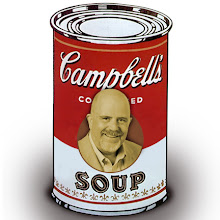How public affairs professionals can deal with attorneys
In the world of public relations, the local staff counsel or outside attorney is either a great colleague or an adversary. In the Air Force, the staff judge advocate was typically helpful, but there were times when public affairs professionals like me had to remind them that they should serve as a roadblock in the communications process.
Author/social media consultant
David Meerman Scott pointed out in his
blog today how attorneys are requiring the following legal message on the bottom of each press release:
 NOTICE: This electronic mail transmission contains confidential information intended only for the person(s) named. Any use, distribution, copying or disclosure by any other person is strictly prohibited. If you received this transmission in error, please notify the sender by reply e-mail and then destroy the message. Opinions, conclusions, and other information in this message that do not relate to the official business of AGENCY X shall be understood to be neither given nor endorsed by AGENCY X. Before opening any attachments please check them for viruses and defects. When addressed to AGENCY X clients, any information contained in this e-mail is subject to the terms and conditions in the governing client contract.
NOTICE: This electronic mail transmission contains confidential information intended only for the person(s) named. Any use, distribution, copying or disclosure by any other person is strictly prohibited. If you received this transmission in error, please notify the sender by reply e-mail and then destroy the message. Opinions, conclusions, and other information in this message that do not relate to the official business of AGENCY X shall be understood to be neither given nor endorsed by AGENCY X. Before opening any attachments please check them for viruses and defects. When addressed to AGENCY X clients, any information contained in this e-mail is subject to the terms and conditions in the governing client contract.
Sadly, I think some attorneys actually believe that media types actually read and heed this message. More importantly, in times of crisis communication, the public relations professional gets sidetracked by the attorney.
Retired Brigadier General Harry J. Dalton once commented that PR professionals had to take the lead in this situations. I still remember the former director of Air Force public affairs and his speech on the court of law versus the court of public opinion.
"Too often public relations professionals allow their legal partners delay or make significant changes in the release. PR professionals have to remind their bosses that the court of public opinion is already in session when something bad happens, while the court of law could take years to reach a settlement."
The solution as Scott noted is that communications professionals need to work with their attorneys on plans involving how to communicate in times of crisis. Great legal minds can help the public relations professional understand the need to communicate in a certain way, but these attorneys also have to understand that their public relations counterpart understands how their message will mitigate damage and public opinion.





No comments:
Post a Comment